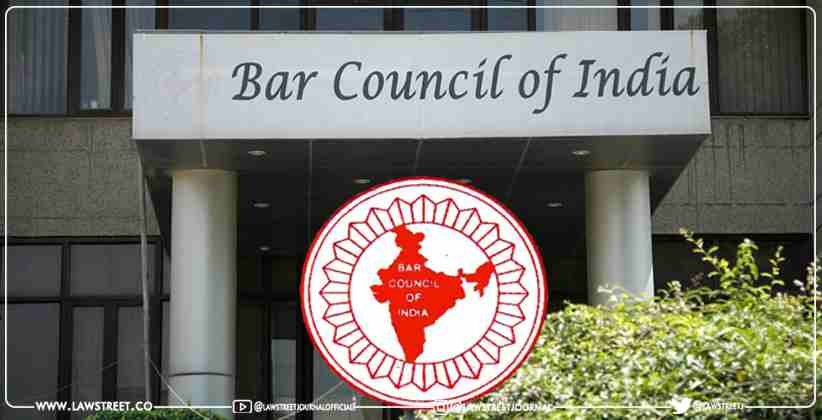The Supreme Court has called for a "total overhaul" of India's legal education system, recommending that the Bar Council of India implement a host of reforms ranging from Law College standards to placement of young law graduates.
Concerns about the quality of legal education were raised by a bench led by Justice Sanjay Kishan Kaul and Justice MM Sundresh, who cited a slew of difficulties plaguing the legal profession.
"Whether it's the Bar test or the accountability of the country's sprinkling of law schools, you (BCI) have issues on several fronts. During a hearing on Tuesday, the bench warned BCI's lawyer, SN Bhat, that "certain standards must be maintained at every stage."
It remained adamant that legal education standards would not improve unless BCI, India's apex regulatory body for the legal profession, tightened the examination yardstick, maintained more stringent entry-level control, and ensured constant monitoring of law colleges to ensure a certain standard of education.
"What you need is a thorough makeover," the bench remarked as it heard an appeal by BCI against a Gujarat high court judgement that, through an order in November 2020, permitted a woman to join as an attorney without quitting her work. Although the guidelines clearly say that no one can enlist as an advocate while being gainfully engaged in another position, BCI contended that the ruling would open the floodgates for such petitions.
The bench included four questions in its ruling, which BCI must consider and respond to categorically by April 12. On Thursday, the court order explaining the four questions was made public.
The first concern was about BCI laws barring someone working in another profession from being a lawyer. The panel ordered BCI to explore whether it may allow persons who are gainfully employed in other professions to appear for the Bar test, stating that a balance must be found between the right to practice a profession and the duty to supervise the legal profession for greater ethics.
The bench, citing senior counsel and amicus curiae KV Viswanathan's comments, stated that the outcome of a Bar test may be valid for three years, allowing a person to decide whether or not to quit their previous profession to pursue registration as an advocate.
The court asked BCI to examine this proposal, stating that when BCI regulations require a person to quit their employment first and then take the Bar exam for registration, it becomes a "difficult decision of economic necessity."
The bench's second query concerned "the necessity of having stronger responsibility from law institutions as a result of their development and the lack of required professors."
It was decided that stronger supervision by BCI would be necessary to guarantee that a law college that has been recognized once does not rest on its laurels, and that it constantly adheres to the regulating body's requirements.
The court also criticized the quality of law school admission exams, saying, "In order to make it more meaningful, the exam procedure can be one to better measure the competence and knowledge of a practitioner of law, not necessarily based on rote ability, but on an analytical thinking process." It alluded to Viswanathan's claim that legal admission tests in the United Kingdom are based on a "Miller Pyramid Scheme" of evaluation in which all areas of a potential Bar entry candidate's reading, writing, expression, and communication are assessed.
The court's fourth inquiry asked BCI to make recommendations on how to develop "a fair framework" for juniors to get chambers placement. "Despite the huge number of duties to be completed, we wish and expect the Bar Council of India to act with haste in the aforementioned procedure." As a result, Mr. Bhat, the learned senior counsel, must get directions from the Council after proper discussions before the next date of hearing," the court ruling stated.
According to BCI figures, there are around 1,500 law institutions in the United States, with private universities accounting for 75% of the total. BCI put a three-year freeze on the creation of new law colleges in August 2019, vowing to focus on enhancing the quality of current law institutions. However, if a state sought it, the moratorium did not apply to the establishment of a new National Law University. According to BCI data, the country has 1.7 million registered attorneys, with 80,000 to 100,000 new advocates joining each year.
The bench lamented that "anti-social elements" were graduating with a law degree without ever attending a single lesson at the case's final hearing on January 24, and ordered BCI to stop from lowering the requirements of law school admission tests.
Despite the fact that BCI is authorized by law to impose requirements for admission to law schools and enrolling of attorneys in the nation, the bench stated that the current scenario necessitates intervention by the Supreme Court.
Manan Kumar Mishra, senior counsel and chairman of the BCI, stated that the Council is aware of the Supreme Court's concerns. "On March 22, we have summoned a meeting of office-bearers at which all concerns will be considered. Following our deliberation, we will react appropriately to the court," he added.








